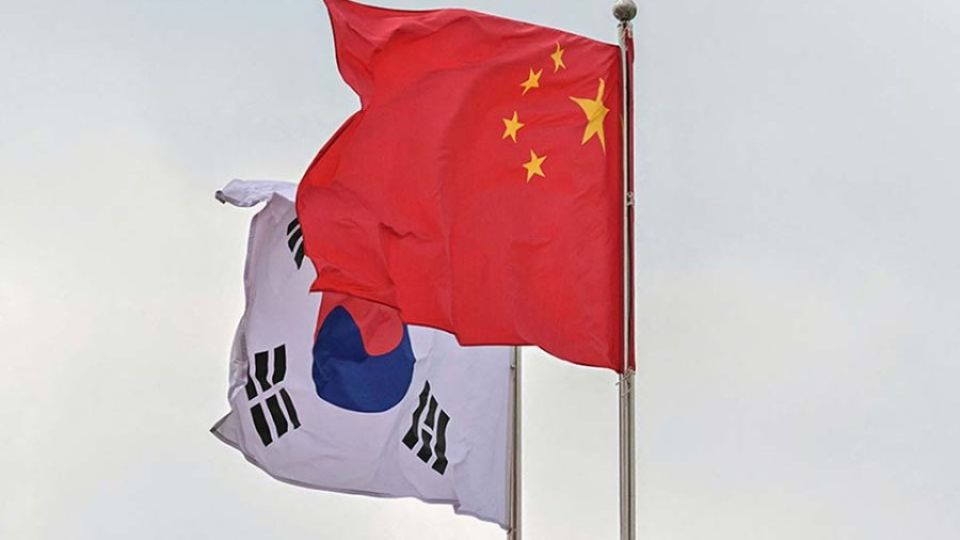February 21, 2025
SEOUL – A Chinese newspaper published an expert commentary recently, pointing out that Korean far-right forces are spreading fake news about China’s involvement in Korean elections and that such remarks have also led to violent behavior. The expert criticized threats and attacks on Chinese residents in Korea, stating that they violate the rule of law and the minimum moral limits of a civilized country. The commentator complained that the Korean government neglects false information. The commentary can be regarded as an informal expression of the Chinese government’s dissatisfaction with the Korean government.
China’s reaction reflects a possible judgment that Korea’s rapidly spreading China-hating atmosphere cannot be neglected. Even before the Dec. 3 martial law incident, negative public opinion about China existed, but the speed and pattern of its spread began to change rapidly as ideas about election fraud gained ground. If this trend continues, relations between Korea and China will deteriorate to an extent that is difficult to reverse, and China and Korea will undoubtedly suffer great losses in their national interests. Therefore, stopping the deterioration should be a major task for both nations. To solve the problem, we need to first examine its causes and background.
President Yoon Suk Yeol’s failed insurrection on Dec. 3 last year drove the sudden spread of a China-hating mood in Korea. President Yoon claimed that the opposition party abused power, and the National Election Commission refused to cooperate despite allegations of a fraudulent election. After the failed self-coup, Yoon was impeached by the National Assembly and indicted by the prosecutor’s office. Chances are slim that he will return to the presidency or be reinstated politically. However, lots of conservative people support him, and they sympathize with the conspiracy theory of election fraud as laid out in President Yoon’s claims. Alongside the notion that North Korea and China were behind the fraudulent election, China-hate rapidly expanded.
Conspiracy theorists have consistently argued that the elections were fraudulent despite the Supreme Court ruling that the claim is baseless. Recently, a small, far-right media outlet claimed that there were 99 Chinese nationals involved in election fraud at an election commission facility, and that Korean and American forces arrested them and sent them to Japan or the United States. However, Korea’s Ministry of National Defense, US Forces Korea and the NEC have firmly stated that the report is entirely false and there is no reasonable probability or possibility that it could happen.
Why do conspiracy theorists continue to lie? It is a problem directly related to the crisis of trust in Korean media. Due to the influence of political polarization and the rise of social media, people do not trust legacy media reports, believing only the news they prefer. YouTubers make claims from an individual perspective and are not included in the category of trusted journalists. However, lots of people trust YouTubers more than legacy media. Such a phenomenon is unhealthy, but it actually exists, and conspiracy theorists actively utilize that point.
Even before the martial law decree, a considerable level of anti-China sentiment existed. Since China’s economic pressure regarding the deployment of a THAAD missile defense system in July 2016, anti-China sentiment has become common. China’s economic hostility can be seen as a significant flaw in diplomatic communication between Korea and China. At the time, the Chinese government inquired about Korea’s position on THAAD, and the Korean side confirmed several times that the system would not be deployed. However, Korea did deploy THAAD in a surprise move, and China launched an unofficial economic attack.
In the first half of 2016, then-President Park Geun-hye did not appear to have considered China’s position, as she focused on an emotional confrontation with North Korea. Additionally, communication with her diplomatic aides was ineffective, so she did not receive a warning that China would undertake an ultra-hardline reaction if THAAD deployment occurred. However, China’s economic pressure on South Korea was not a reasonable response because it only exacerbated the situation and had no substantial diplomatic effect, even if it was understood that unwanted conflict occurred due to the lack of communication between South Korea and China.
Why did China respond unreasonably? If you look at the political situation in China that took place afterward, analysts have said that China started to focus on managing President Xi Jinping’s charisma around 2016. As President Xi presented a vision of the Chinese Dream and expectations that China could rise to the status of a superpower, it was a time of mounting pressure on China to take a hard-line diplomatic stance to protect its national interest and system. After all, China launched an economic attack on the issue of THAAD because it focused on diplomacy that values a firm and hard-line attitude in the domestic political context rather than considering practical benefits.
To summarize the findings, China’s hard-line foreign policy on the THAAD issue created anti-China sentiment in Korea before 2022. In the wake of the martial law crisis in December 2024, conspiracy theorists in Korea spread the false rumor of Chinese intervention, which is rapidly spreading among President Yoon’s supporters. Some right-wing forces who have fallen for the conspiracy theory are trying to create an excuse for violent behavior to provoke diplomatic conflict between Korea and China.
Effective and timely responses should be made to resolve a situation in which false rumors are killing opportunities for Korea and China to reap mutual benefits. The Korean government should actively explain that there is no basis for the conspiracy theory of fraudulent elections or Chinese intervention, and the Korean media should report the facts to the people. Korean media should also do everything to restore people’s trust. In the case of China, any measures that could harm relations between Korea and China should be eschewed. China should adopt rational foreign policies for its interests and coexistence with people of other nations. Significantly, China should better follow the general principles of public diplomacy, such as listening to the voices of other nations.


